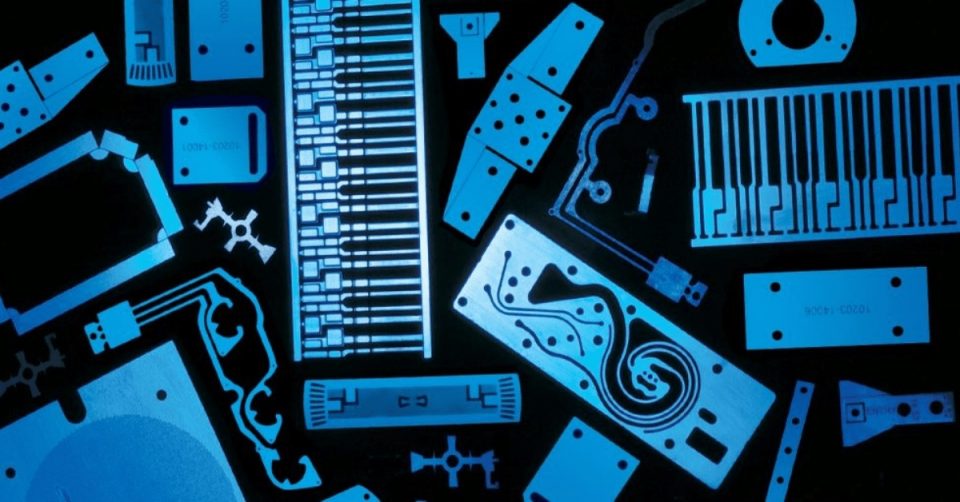Chemical etching is a machining process where chemicals are used to create complex and precise components for countless industrial applications. Almost any metal can become an etched component and the processes used to make these components offer many advantages over other machining processes.
Providing the sheet metal is thin enough, usually between 0.01mm and 1.5mm, then most metals can be manufactured into etched components. This includes steel, coper, nickel, aluminium, titanium and various alloys of each of these, and the chemical etching process is arguably the best choice when metal components require complex designs to be precisely etched.
Here’s a quick overview of some of the main advantages of chemical etching:
Low Risk Prototyping and Design Flexibility
Because tooling using in chemical etching is digital, designing prototypes of etched components are virtually risk free. If the design requires changes during the prototype phase, they can be made much faster and without any financial losses.
This means that the design process is much quicker and cost-effective compared to other manufacturing processes, such as stamping, making it easier to achieve optimal designs while keeping costs down.
The amount of design flexibility that chemical etching offers is unrivalled!
Metal Remains Unaffected
Besides the chemical dissolving away the unwanted parts of the metal, the material remains unaffected from the chemical etching process. The internal properties do not undergo any changes, which often occurs when there is a point of contact on the metal, such as what happens when using heat tooling or hard tooling processes.
For example, the metal retains its hardness and doesn’t go through any ductility during the process. This is a huge benefit for various applications of etched components, namely where precision and conductivity are a priority, resulting in the chemical etching being used to create various electronic etched components.
Burr-Free Components
One big advantage this process offers is that all etched components are free of burrs and any other stresses that can occur during manufacturing processes. Burns and burs can occur on the metal from other machining methods, which may impact the functionality of the component.
For instance, electronic components require smooth surface area for optimal conductivity, while a lack of burrs ensures that the is no unwanted friction or heat, which would otherwise decrease the performance of the component.
This means etched components requires no deburring process, which is commonplace in various other processes, further saving on costs and increasing production turnaround.
Fast and Low-Cost Production
Chemical etching is a process that optimise the number of components created in a single design.
This means that repeat production becomes faster and more affordable than almost any other tooling process, including laser and stamping, with this becoming even more apparent when complex designs are required.
Furthermore, the lack of heat or force used results in no burrs or stresses, ensuring a faster production turnaround than processes that need to address these manufacturing issues.

